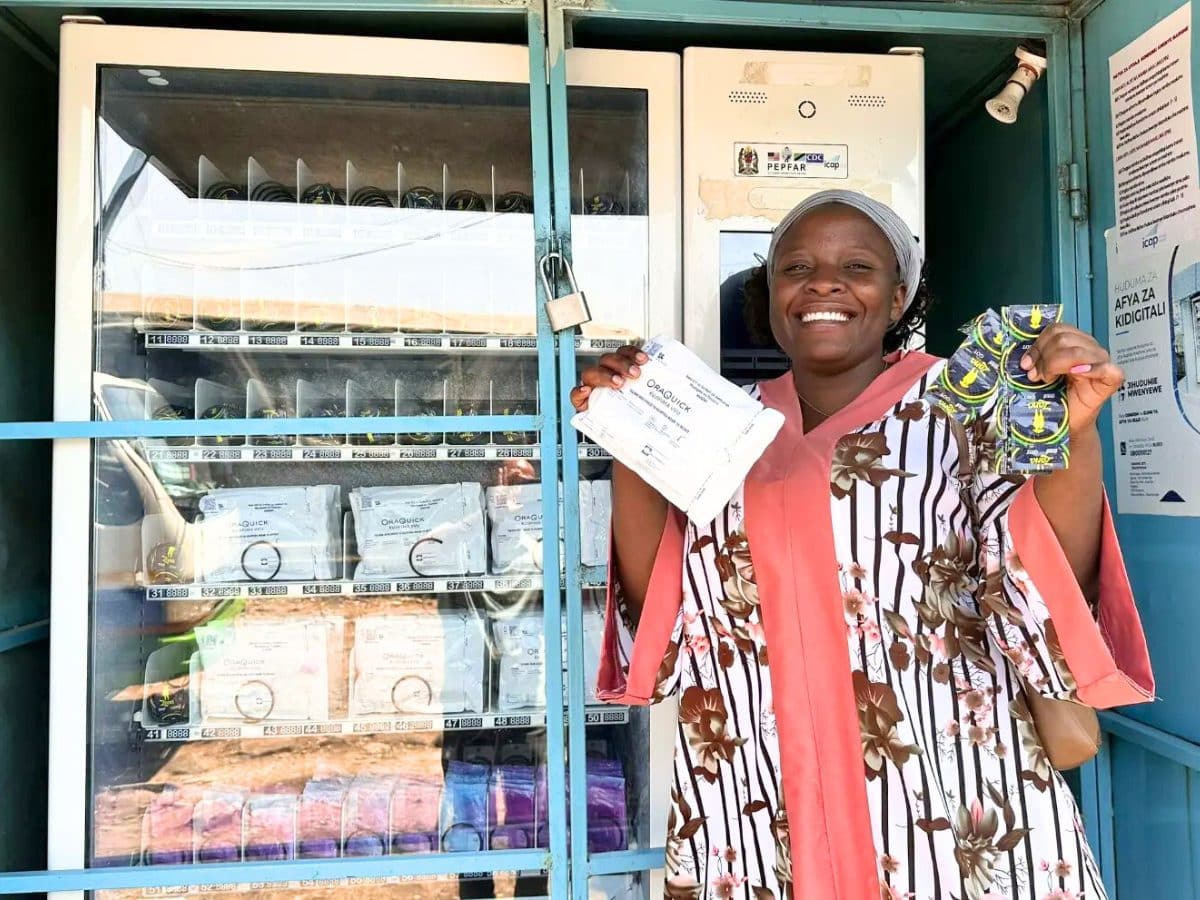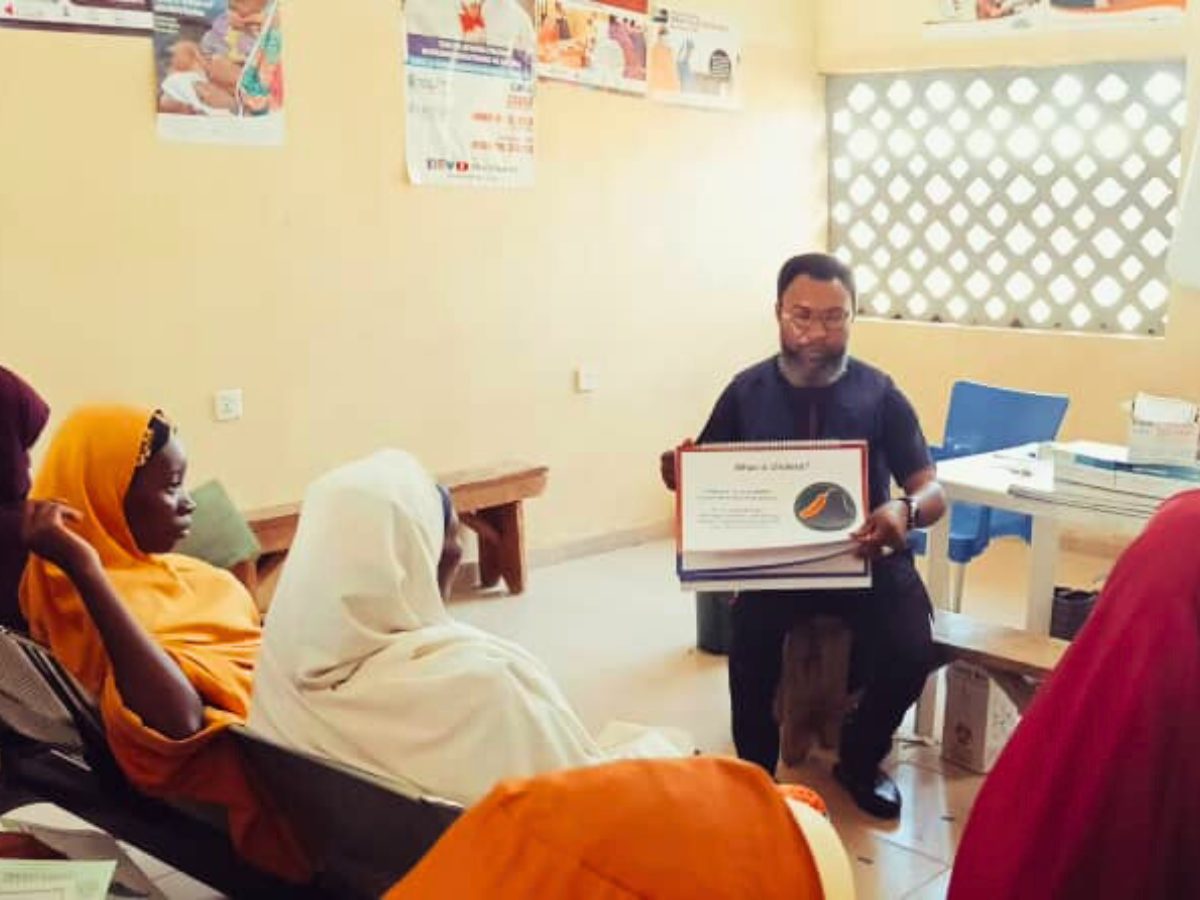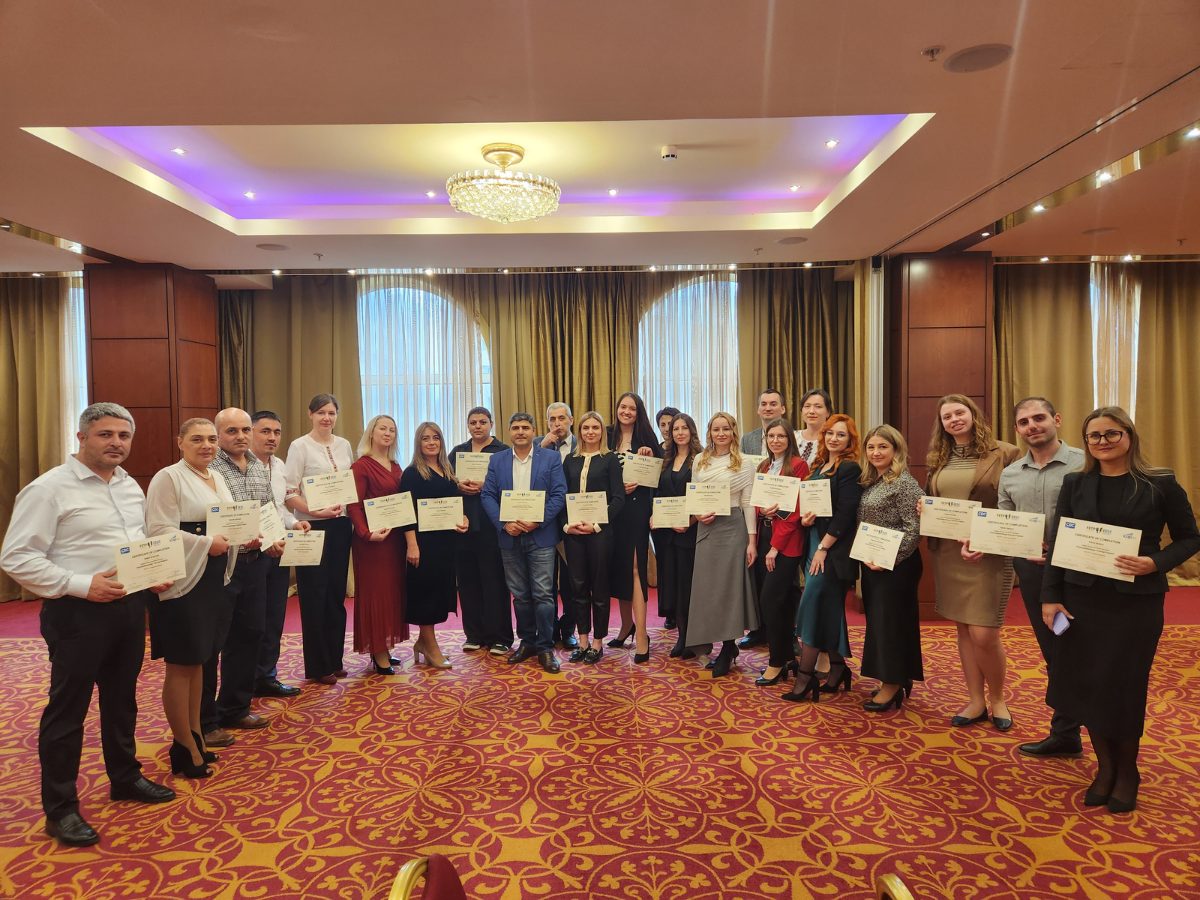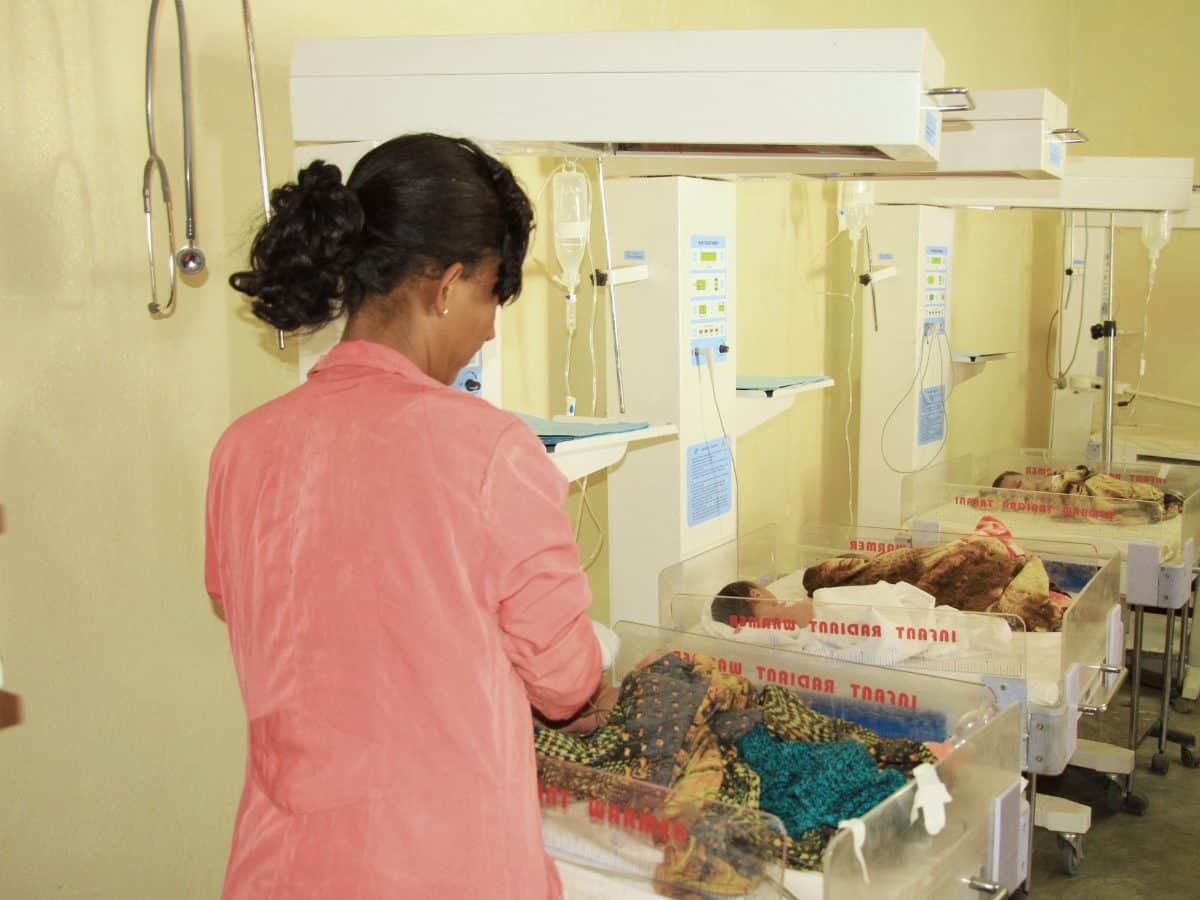Digital vending machines are making it easier for people to access contraceptives and HIV testing services across two regions of Tanzania.
Supported by the U.S. President’s Emergency Plan for AIDS Relief (PEPFAR) through the Centers for Disease Control and Prevention (CDC), ICAP in Tanzania installed seven vending machines – five in the northern region of Mwanza and two in the northwestern region of Geita – that offer condoms and HIV self-testing kits to people for free. Open 24 hours, the vending machines are strategically located near nightclubs and other community hotspots.
“We target these areas because they are crucial points for reaching key and vulnerable populations,” said Raymond Bandio, MD, MPH, HIV testing and prevention advisor for ICAP in Tanzania. “By focusing on these locations and groups, we aim to reduce barriers to accessing prevention products and testing services, and importantly, we can promote early detection of HIV and encourage safe sexual practices, which are key to reducing HIV transmission.”
ICAP began integrating HIV self-testing kits into the vending machines, which previously offered only condoms, in July 2024. But after just three months, demand for the kits has been incredibly high. Nearly 1,000 HIV self-testing kits and more than 160,000 condoms have been distributed in Mwanza and Geita.
The HIV self-testing kits include instructions both in English and Swahili on how to use and dispose of the materials provided, and how to report results. MyService, a collaborator of the digital vending machine program, also developed and installed instructional videos on the vending machines, which users can interact with. Additionally, there’s a toll-free number available for assistance from a dedicated ICAP supervisor for each hotspot that can provide users further guidance.
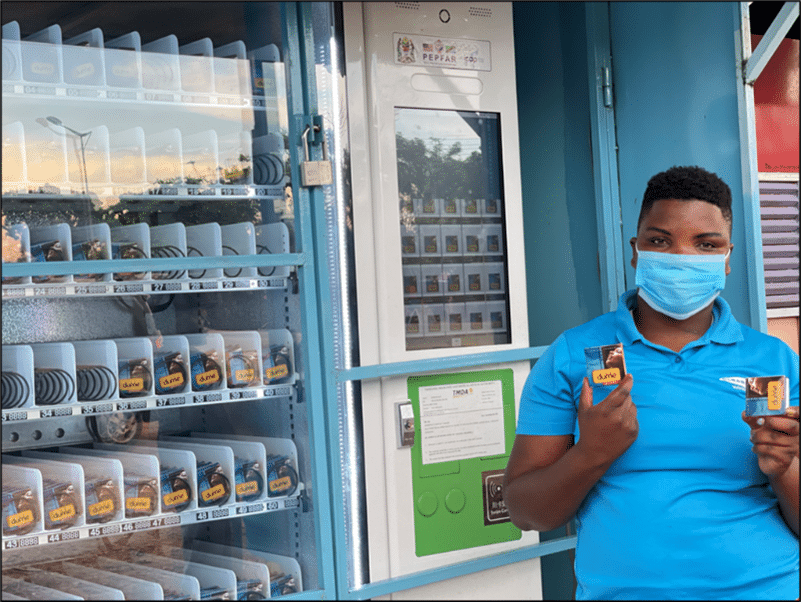
After just three months, nearly 1,000 HIV self-testing kits and more than 160,000 condoms have been distributed in Mwanza and Geita.
ICAP tracks the number of people accessing the HIV self-testing kits by requiring individuals to register their demographic information and provide a phone number for follow-up after using the self-test. If a user tests positive, their follow-up contact will guide them through the process of reaching a nearby health facility to initiate antiretroviral treatment and counseling. ICAP has also engaged key and vulnerable population peers in each region who help connect clients to HIV services and conduct outreach to generate demand for the machines.
“The vending machine has reduced my workload because now I can refer clients, especially women and men at high risk, to get condoms and HIV self-testing directly,” said Godbless Shoo, a community outreach volunteer. “At night, when we’re in situations where we need to test, the vending machine has made it convenient because the kits are readily available. It has reduced the time we would have spent waiting at a facility.”
“For clients who call me at night needing to test,” added Magdalena Clement, another community outreach volunteer, “I refer them to the nearest vending machines. It reduces the hassle of finding transportation to go test them because I can guide them over the phone.”
The major objectives of the initiative are increasing access to condoms in areas that experience periodic stock-outs and increasing access to HIV testing services where testing rates are low. By placing vending machines in strategic locations, the program aims to reduce stigma associated with and barriers to HIV prevention and testing.
“The vending machine has reduced stigma for key and vulnerable populations,” said Juliana Francis, a community outreach volunteer, “because now they don’t have to go to facilities where they may feel uncomfortable to get condoms and HIV self-testing.”
About ICAP
A major global health organization that has been improving public health in countries around the world for two decades, ICAP works to transform the health of populations through innovation, science, and global collaboration. Based at Columbia Mailman School of Public Health, ICAP has projects in more than 40 countries, working side-by-side with ministries of health and local governmental, non-governmental, academic, and community partners to confront some of the world’s greatest health challenges. Through evidence-informed programs, meaningful research, tailored technical assistance, effective training and education programs, and rigorous surveillance to measure and evaluate the impact of public health interventions, ICAP aims to realize a global vision of healthy people, empowered communities, and thriving societies. Online at icap.columbia.edu


